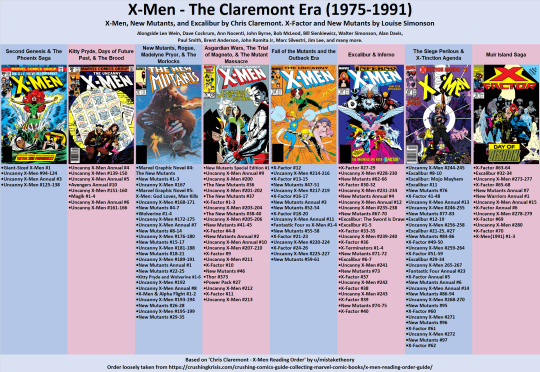#How-To Guide
Explore tagged Tumblr posts
Text
I was trained to clean by an absolute madwoman. But I know a lot of people who did not get that education. So this link is for you!
Midwest Magic Cleaning’s intro to housekeeping.
8 notes
·
View notes
Text
How to Free Up Space on Windows 10: A Comprehensive Guide
As your Windows 10 system accumulates more files and applications, it can start to slow down and become less efficient. Freeing up space not only improves your system’s performance but also extends its lifespan. In this guide, we’ll explore various methods to free up space on Windows 10, going beyond the basics to ensure you have a well-optimized system.

Table of Contents
Introduction
Understanding Disk Space Usage
Utilizing Built-in Windows Tools
Disk Cleanup
Storage Sense
Uninstalling Unnecessary Applications
Managing Temporary and Cached Files
Cleaning Up System Files
Windows Update Cleanup
System Restore and Shadow Copies
Using Third-Party Disk Cleaners
Handling Large Files and Folders
Moving Data to External Storage
Using Cloud Storage Solutions
Conclusion
1. Introduction
As modern software and files grow larger, managing disk space effectively becomes crucial. This guide offers practical steps and tips to reclaim disk space on your Windows 10 computer, ensuring it runs smoothly and efficiently.
2. Understanding Disk Space Usage
Before freeing up space, it’s essential to understand how your disk space is being used. Navigate to Settings > System > Storage to view a detailed breakdown. This will help identify which areas need attention.
3. Utilizing Built-in Windows Tools
Disk Cleanup
Windows 10 features a built-in Disk Cleanup tool designed to delete unnecessary files. To access it:
Type “Disk Cleanup” in the search bar and select the app.
Choose the drive you want to clean.
Select the file types to delete (e.g., temporary files, system cache).
Storage Sense
Storage Sense automates disk cleanup. To enable it:
Go to Settings > System > Storage.
Toggle on Storage Sense and configure settings to regularly delete temporary files.
4. Uninstalling Unnecessary Applications
Unused applications take up significant space. To uninstall them:
Go to Settings > Apps > Apps & features.
Review the list and uninstall non-essential programs.
5. Managing Temporary and Cached Files
Temporary files can quickly accumulate and consume disk space. Use Disk Cleanup or third-party tools to regularly clear these files. Browsers also store cached data, which can be cleared from the browser settings.
6. Cleaning Up System Files
Windows Update Cleanup
Old update files can take up substantial space. Disk Cleanup includes an option to remove these:
Open Disk Cleanup and select Clean up system files.
Choose Windows Update Cleanup.
System Restore and Shadow Copies
System Restore points and shadow copies can consume significant disk space. Manage these by:
Typing “System Protection” in the search bar.
Selecting the drive and clicking Configure.
Adjusting the Max Usage slider to limit space usage.
7. Using Third-Party Disk Cleaners
Third-party tools like CCleaner provide more comprehensive cleaning options. They can remove junk files, clean registries, and manage startup programs to free up space.
8. Handling Large Files and Folders
Identifying and managing large files is crucial. Use tools like WinDirStat to find large files and folders. Consider moving non-essential large files to external storage.
9. Moving Data to External Storage
Free up space by moving data such as videos, photos, and documents to external hard drives or USB sticks. Ensure you regularly back up important data to avoid loss.
10. Using Cloud Storage Solutions
Cloud storage services like OneDrive, Google Drive, and Dropbox offer substantial space. Move infrequently accessed files to the cloud to save local disk space.
11. Conclusion
Regular maintenance and mindful storage practices can keep your Windows 10 system running efficiently. Use the tips and tools outlined in this guide to manage and optimize your disk space effectively.
External Authoritative Sources
Microsoft Support: Free up drive space in Windows
CCleaner Official Website
How-To Geek: The Ultimate Guide to Freeing Up Space on Your Windows PC
By following these detailed steps, you can efficiently manage and optimize your disk space on Windows 10, ensuring your system remains fast and reliable.
#Windows 10 Performance#Disk Cleanup#Storage Management#System Optimization#PC Maintenance#Free Up Space#Windows 10 Tips#Specific Techniques:#Disk Cleanup Tool#Storage Sense#Uninstall Programs#Temporary File Management#System File Cleanup#Third-Party Disk Cleaners#Advanced Techniques:#Large File Management#External Storage Solutions#Cloud Storage for Windows#System Restore Management#Windows Update Cleanup#How-To Guide#Windows 10 Efficiency
2 notes
·
View notes
Text

Idk how happy it makes me but it does make me feel better knowing I’m not in this alone
#postsecret#we out here#we wingin it#no#how-to guide#for us#kind of#happy#postsecrets#winging it#life#no instructions#no manual#no idea#what we doin#out here#none of us do#post secret#makes me happy#we are all in this together#we’re all winging it#not alone after all#we don’t know#what we’re doing#and that’s okay#we is out here
9 notes
·
View notes
Text
OP, this is fabulous and you did a great thing in sharing it!
@katenepveu, you did a great thing in creating a text version!
One of the stranger things about training brand new nurses is explaining how to min max small talk. It feels very weird to coach people on how to chat.
50K notes
·
View notes
Text
Other Words for "Look" + With meanings | List for writers
Many people create lists of synonyms for the word 'said,' but what about the word 'look'? Here are some synonyms that I enjoy using in my writing, along with their meanings for your reference. While all these words relate to 'look,' they each carry distinct meanings and nuances, so I thought it would be helpful to provide meanings for each one.
Gaze - To look steadily and intently, especially in admiration or thought.
Glance - A brief or hurried look.
Peek - A quick and typically secretive look.
Peer - To look with difficulty or concentration.
Scan - To look over quickly but thoroughly.
Observe - To watch carefully and attentively.
Inspect - To look at closely in order to assess condition or quality.
Stare - To look fixedly or vacantly at someone or something.
Glimpse - To see or perceive briefly or partially.
Eye - To look or stare at intently.
Peruse - To read or examine something with great care.
Scrutinize - To examine or inspect closely and thoroughly.
Behold - To see or observe a thing or person, especially a remarkable one.
Witness - To see something happen, typically a significant event.
Spot - To see, notice, or recognize someone or something.
Contemplate - To look thoughtfully for a long time at.
Sight - To suddenly or unexpectedly see something or someone.
Ogle - To stare at in a lecherous manner.
Leer - To look or gaze in an unpleasant, malicious way.
Gawk - To stare openly and stupidly.
Gape - To stare with one's mouth open wide, in amazement.
Squint - To look with eyes partially closed.
Regard - To consider or think of in a specified way.
Admire - To regard with pleasure, wonder, and approval.
Skim - To look through quickly to gain superficial knowledge.
Reconnoiter - To make a military observation of a region.
Flick - To look or move the eyes quickly.
Rake - To look through something rapidly and unsystematically.
Glare - To look angrily or fiercely.
Peep - To look quickly and secretly through an opening.
Focus - To concentrate one's visual effort on.
Discover - To find or realize something not clear before.
Spot-check - To examine something briefly or at random.
Devour - To look over with eager enthusiasm.
Examine - To inspect in detail to determine condition.
Feast one's eyes - To look at something with great enjoyment.
Catch sight of - To suddenly or unexpectedly see.
Clap eyes on - To suddenly see someone or something.
Set eyes on - To look at, especially for the first time.
Take a dekko - Colloquial for taking a look.
Leer at - To look or gaze in a suggestive manner.
Rubberneck - To stare at something in a foolish way.
Make out - To manage to see or read with difficulty.
Lay eyes on - To see or look at.
Pore over - To look at or read something intently.
Ogle at - To look at in a lecherous or predatory way.
Pry - To look or inquire into something in a determined manner.
Dart - To look quickly or furtively.
Drink in - To look at with great enjoyment or fascination.
Bask in - To look at or enjoy something for a period of time.
#on writing#creative writing#writing#writing tips#writers block#how to write#thewriteadviceforwriters#writeblr#writers and poets#writers on tumblr#novel writing#fiction writing#romance writing#writing advice#writing blog#writing characters#writing community#writing help#writing ideas#writing inspiration#writing guide#writing prompts#writing a book#writing resources#writing reference#writing tips and tricks#writers#writing tools#writing life#writing software
16K notes
·
View notes
Text
🌐 Unlock the Best of Everything! Explore a treasure trove of helpful blogs, from tech tips to lifestyle hacks, trending updates, and more—all in one place. Don’t miss out on the knowledge that can change your game.
#Must-Read Blogs#Trending Topics#Tech and Lifestyle#Daily Tips#Explore More#Digital Hacks#Smart Living#DIY Projects#Knowledge Hub#Boost Your Skills#Specific Tags (For Popular Niches):#PC Optimization#Lifehacks#Tech Upgrades#Cryptocurrency Tips#Northern Lights Forecast#Best Travel Destinations#AI Tools Guide#Self-Care Routines#Money-Saving Ideas#Fitness and Wellness#How-To Guide#Easy Solutions#Step-by-Step Tips#Get Inspired#Internet Finds#Global Trends#Discover Today#Explore the World#Digital Life
1 note
·
View note
Text


I love how Gerald was trying to keep Shadow from spoiling anything about the future meanwhile literally everything Shadow says and does around Maria is the biggest death flag ever
#in fairness i’m sure both past robotniks just assumed her illness would be what killed her h a#sxsg#sxsg spoilers#sonic x shadow generations#shadow the hedgehog#maria robotnik#ark siblings#sonic#comic#my art#doodles#so this was pretty much entirely done 24 hours ago#but ironically was distracted from posting earlier by playing sxsg#and then watching snapcube play it cause her delight is addicting#i’m missing 2 chests and 2 bolts and I wanna see if I can pull it off without a guide haha#anyways now I’m thinking about the fact that maria and gerald probably went back to their time assuming maria would die of her sickness#and how that would change their respective behaviors#i bet gerald would be holding out that maria would still live a bit longer#just cause shadow inadvertently revealed he’s from at least 50 years in the future due to having met black doom before#(which rewatching cutscenes to remember this quote he Did try to play off a little bit with some sort of#‘oh what do you think the alien squid meant by ’this time i’ll beat you’ that’s so crazy’ comment)#so hey maybe it wasn’t a perfect cure but she managed to live another 10-20 years at least?#all the more reason to press harder surely!#meanwhile maria is coming to terms with her mortality at age 14 or whatever she is#frankly I bet she came to terms with it long ago the way she seems to be written#okay back to snapcube
17K notes
·
View notes
Text
HOW TO WRITE A CHARACTER WHO IS IN PAIN
first thing you might want to consider: is the pain mental or physical?
if it’s physical, what type of pain is it causing? — sharp pain, white-hot pain, acute pain, dull ache, throbbing pain, chronic pain, neuropathic pain (typically caused by nerve damage), etc
if it’s mental, what is the reason your character is in pain? — grief, heartbreak, betrayal, anger, hopelessness, fear and anxiety, etc
because your character will react differently to different types of pain
PHYSICAL PAIN
sharp and white-hot pain may cause a character to grit their teeth, scream, moan, twist their body. their skin may appear pale, eyes red-rimmed and sunken with layers of sweat covering their forehead. they may have tears in their eyes (and the tears may feel hot), but they don’t necessarily have to always be crying.
acute pain may be similar to sharp and white-hot pain; acute pain is sudden and urgent and often comes without a warning, so your character may experience a hitched breathing where they suddenly stop what they’re doing and clench their hand at the spot where it hurts with widened eyes and open mouth (like they’re gasping for air).
dull ache and throbbing pain can result in your character wanting to lay down and close their eyes. if it’s a headache, they may ask for the lights to be turned off and they may be less responsive, in the sense that they’d rather not engage in any activity or conversation and they’d rather be left alone. they may make a soft whimper from their throat from time to time, depends on their personality (if they don’t mind others seeing their discomfort, they may whimper. but if your character doesn’t like anyone seeing them in a not-so-strong state, chances are they won’t make any sound, they might even pretend like they’re fine by continuing with their normal routine, and they may or may not end up throwing up or fainting).
if your character experience chronic pain, their pain will not go away (unlike any other illnesses or injuries where the pain stops after the person is healed) so they can feel all these types of sharp pain shooting through their body. there can also be soreness and stiffness around some specific spots, and it will affect their life. so your character will be lucky if they have caretakers in their life. but are they stubborn? do they accept help from others or do they like to pretend like they’re fine in front of everybody until their body can’t take it anymore and so they can no longer pretend?
neuropathic pain or nerve pain will have your character feeling these senses of burning, shooting and stabbing sensation, and the pain can come very suddenly and without any warning — think of it as an electric shock that causes through your character’s body all of a sudden. your character may yelp or gasp in shock, how they react may vary depends on the severity of the pain and how long it lasts.
EMOTIONAL PAIN
grief can make your character shut themself off from their friends and the world in general. or they can also lash out at anyone who tries to comfort them. (five states of grief: denial, anger, bargaining, depression and eventual acceptance.)
heartbreak — your character might want to lock themself in a room, anywhere where they are unseen. or they may want to pretend that everything’s fine, that they’re not hurt. until they break down.
betrayal can leave a character with confusion, the feelings of ‘what went wrong?’, so it’s understandable if your character blames themself at first, that maybe it’s their fault because they’ve somehow done something wrong somewhere that caused the other character to betray them. what comes after confusion may be anger. your character can be angry at the person who betrayed them and at themself, after they think they’ve done something wrong that resulted in them being betrayed, they may also be angry at themself next for ‘falling’ for the lies and for ‘being fooled’. so yes, betrayal can leave your character with the hatred that’s directed towards the character who betrayed them and themself. whether or not your character can ‘move on and forgive’ is up to you.
there are several ways a character can react to anger; they can simply lash out, break things, scream and yell, or they can also go complete silent. no shouting, no thrashing the place. they can sit alone in silence and they may cry. anger does make people cry. it mostly won’t be anything like ‘ugly sobbing’ but your character’s eyes can be bloodshot, red-rimmed and there will be tears, only that there won’t be any sobbing in most cases.
hopelessness can be a very valid reason for it, if you want your character to do something reckless or stupid. most people will do anything if they’re desperate enough. so if you want your character to run into a burning building, jump in front of a bullet, or confess their love to their archenemy in front of all their friends, hopelessness is always a valid reason. there’s no ‘out of character’ if they are hopeless and are desperate enough.
fear and anxiety. your character may be trembling, their hands may be shaky. they may lose their appetite. they may be sweaty and/or bouncing their feet. they may have a panic attack if it’s severe enough.
and I think that’s it for now! feel free to add anything I may have forgotten to mention here!
#how to#writers on writing#writing#whump#writer#whumpblr#writers#writeblr#angst#writing guide#writing resources#writing challenge#writing inspo#writing inspiration#whump prompts#whump prompt#writing tropes#writing trope#ao3#archive of our own#fanfic#blorbo#comfort character#fanfiction#tropes#trope#whump tropes#prompts#prompt#whump trope
17K notes
·
View notes
Text

btw. i made this quick guide of some of the natural size and proportion reference points in the human body. of course this all varies even irl, and you can stylize however you want, so ymmv but thought it might be helpful for some folks.
#you can also see a bit of how i sketch the shapes of the torso. little bonus ig lmao#again. this is not a 'you have to do this' guide this is just 'here's smth that helps me so maybe it'll help yall too'#tips#i think that's my tag for this stuff? idr
10K notes
·
View notes
Text




Whoops, wrong Stanley
I know I'm not the first one that have thought about Gravity Falls x the Stanley Parable, but I wanted to draw something too 💃 Also, I think the banter between Stanley and the Narrator would be fun.
#How did Stan get transported into the Stanley Parable you ask?#Probably just Dipper and Mabel wanting to show this game to Stan- due to it's name-#and then. idk. a weird storm happens outside that somehow zaps him into the game or something.#Now he has to put his trust on this Narrator guy to guide him through the game to an ending that hopefully gets him out of there#(and gives the Narrator his Stanley back)#Also. if you're wondering about the “Not this crap again” comment.#it's in reference to one of the GF: Lost Legends stories :]#my art#Stanley Pines#The Narrator#Gravity Falls#Gravity Falls Fanart#The Stanley Parable
4K notes
·
View notes
Text
Take Aim

#epic the musical#epic polites#epic odysseus#polites#odysseus#epic the musical fanart#epic the ithica saga#to that one suitor who tried to use open arms as an excuse to escape i hope polites beat you up in the underworld#so yeah that one part made me pause stand up ane pace for a bit bcuz of how mad i was lmao#so i drew something about it <3#polites is guiding the arrow btw don't mistake this for him trying to hold odysseus back#my art
4K notes
·
View notes
Text
#Composite Cord Strapping#Packaging Solutions#Secure Packaging#How-To Guide#Training Videos#Strapping Techniques#Packaging Tips
1 note
·
View note
Text
I like to think that Bruce has a meticulously maintained order of where and how to store all the gadgets in the Batcave. If it's not followed properly, his entire day is ruined and his disappointment is immeasurable - and Dick knows this.
So whenever they fight, Dick will absolutely sneak into the storage and place the slightly larger Batarangs with the smaller ones, switch the flash grenades with the smoke bombs, and maybe even park the Batmobile slightly sideways instead of having it face the exit directly.
It drives Bruce crazy, but he can't react outwardly lest his other children notice and this cursed psychological warfare begins spreading.
#how to fuck with your vigilante dad 101#guide by tired eldest son that's been benched 10 times this month#batman#dc comics#batfamily#bruce wayne#batfam#batman and robin#robin dc#dick grayson#nightwing
4K notes
·
View notes
Text
How to read X-Men?
For the dear X-Men fans that came in through 97 (or the movies) and are confused as to where to start the comics! Don't let the internet fool you, there is only one way and it is by starting with Giant size X-Men #1 (1975). No I am not kidding, it truly is the only right way to get the full story😭 (unless you want to go ALL THE WAY to 1963, I don't necessarily think it's that vital)
This is me trying to keep ppl from making the same mistake I did, starting with wheadon's astonishing X-Men ☠️
Here is a very useful pic of what to read next 💞 good luck!

This is to get ALL the context and major story arcs still referenced today. So I believe it to be vital for the other eras. (I don't know how you can fully understand jean and Scott's relationship today without having read inferno or dark phoenix for example)
Now, If you just wanna read for one specific character, that's a different story! Character specific reading guides that concentrate on the important issues across time exist! Look for those they're very useful <3
Guide made by: https://www.reddit.com/r/xmen/s/z1xNhqPXtv
https://www.reddit.com/r/comicbooks/s/ChkpOJbXED
#NOBODY tells you how to get into comics when you're confused as fuck#but this#this is the only way with xmen i swear#or you will be confused by everything in the 2000 and up#xmen#marvel#x men comics#comics#reading guide#x-men#xmen 97#x men 97#nightcrawler#scott summers#wolverine#jean grey#ororo munroe#kitty pryde#deadpool#cyclops#rogue#gambit
5K notes
·
View notes
Text
Character Flaws and Their Meanings
Impulsiveness : Acts on instinct without careful planning. Perfectionism : Sets unrealistically high standards, leading to self-criticism. Indecisiveness : Struggles to commit to decisions or choose a path. Arrogance : Overestimates one’s abilities and dismisses others. Pessimism : Habitually expects negative outcomes in most situations. Cynicism : Distrusts the motives and sincerity of others. Overconfidence : Places excessive faith in one’s skills, often underestimating risks. Stubbornness : Resists change and refuses to adapt to new ideas. Jealousy : Feels envious of others' success or possessions. Insecurity : Experiences frequent self-doubt and a lack of confidence. Procrastination : Tends to delay tasks, often leading to missed opportunities. Passivity : Avoids taking initiative and relies on others to act. Aggressiveness : Responds with hostility or force rather than reason. Selfishness : Prioritizes personal gain over the welfare of others. Fragility : Is overly sensitive to criticism and easily discouraged. Egotism : Constantly focuses on oneself and one’s own importance. Defensiveness : Quickly rejects or rationalizes away critique or new information. Manipulativeness : Exploits others to fulfill personal needs or desires. Recklessness : Shows a careless disregard for potential risks or consequences. Resentfulness : Holds lingering bitterness and grudges over perceived wrongs. Distractibility : Finds it hard to maintain focus amid competing interests. Impatience : Lacks the willingness to wait, often spoiling opportunities to learn. Perfunctory : Performs actions in a mechanical, uninspired manner. Self-Doubt : Consistently questions personal abilities and decisions. Arbitraryness : Makes decisions based on whim rather than reason or evidence. Rigidity : Is inflexible and unwilling to consider alternative viewpoints. Gullibility : Trusts too easily, often leading to being misled or deceived. Obsession : Becomes excessively fixated on particular ideas or details. Aloofness : Maintains emotional distance, appearing detached or indifferent. Intolerance : Refuses to accept differing perspectives or lifestyles.
Writing Advice for Brainstorming
Mix genres and time periods: Experiment by combining elements from different eras or genres to create unique settings and narratives.
Use "what if" scenarios: Pose unexpected questions (e.g., What if time travel operated on emotions rather than mechanics?) to spark novel ideas.
Draw from diverse mediums: Engage with art, music, or even scientific papers to inspire unexpected plot twists.
Embrace absurdity: Let illogical or surreal ideas guide you; sometimes the wildest thoughts lead to compelling stories.
Reverse clichés: Identify common tropes in your favorite genres and deliberately invert them to create fresh perspectives.
Incorporate personal anomalies: Transform your idiosyncrasies and personal struggles into rich, multi-dimensional characters.
Use mind-mapping: Visually plot your ideas in a freeform way to uncover hidden connections between disparate elements.
#writing#writeblr#on writing#writing tips#how to write#writers block#creative writing#writers and poets#thewriteadviceforwriters#writers on tumblr#writing project#fiction writing#novel writing#writing a book#writing advice#romance writing#writing characters#writing community#writing guide#writing inspiration#writing prompts#writing ideas#writing reference#writing blog#writing resources#writing help#writing software#writerscommunity#writers#writing tips and tricks
9K notes
·
View notes